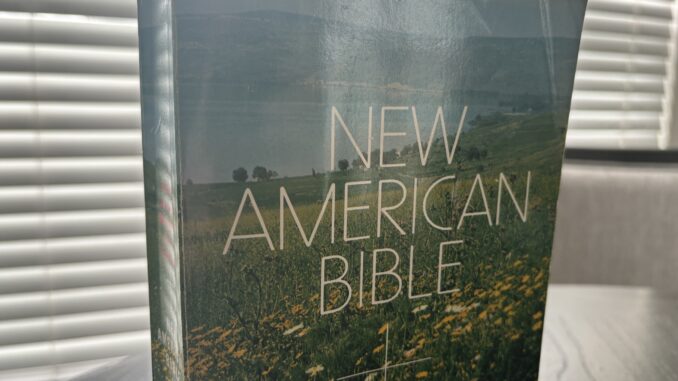
By Brandon Fletcher—
Tori Myles, Miami University Regionals Tutoring and Learning Center Director, and serious
student of Biblical studies, recently led a Faculty Unhinged session regarding authorship of the
Bible. She focused particularly on Christian Apologetics—a defense of faith. Christian
Apologetics, Ms. Myles said, “is a branch of theology devoted to the defense of the divine origin
and authority of Christianity.” She explained that Christians see the Bible as written by the
inspired word of God and is a love story from God to everyone, whereas opponents of divine
origin of the Bible see it as a book of prose, poetry, and legends, and tend to see it as
something used to control others. In her discussion, Myles talked about Biblical history and
many different points of view people take regarding the Bible.
Beginning in the 16th century, some people became unhappy with how the Bible was being
interpreted in current religious practices. Partly as a result of this, a new branch of Christianity
broke off from Catholicism into a new denomination: Protestantism. This period of time was
called the Protestant Reformation. Following this Reformation, Ms. Myles explained, there was
dispute amongst Catholics and Protestants on the following texts: Apocrypha, Braunch, Judith,
1 and 2 Maccabees, Sirach, Tobit, and Wisdom. New interpretations of the Bible became
widespread after the Protestant Reformation.
Not every version of the Bible has always been the same. Myles explained that monks and
other scholars were quite familiar with copying Biblical text before even the earliest printing
press was created, and over the years, those texts underwent translations. Because of these
copying of texts and translations, we have gotten textual variants of the Bible. However, the
speaker insisted that “it doesn’t change the treatments of faith and it doesn’t change the validity
of the Bible.”
When considering studying the Bible itself, Myles explained that it’s important to focus on
source: who said it (form: what was happening when it was written), and text: what did the
original say. Ms. Myles added that the Dead Sea scrolls uncovered by historians have provided
much of what people can use to understand and make sense of the Bible. Considering the
origin of a text can help us understand the historical context of the Bible and its various
interpretations.
Ms. Myles brought up the notion that it was generally believed that Moses wrote much more of the
Torah, or Pentateuch, than is believed today. But, concerning the New Testament, the
general consensus is that it was written primarily by disciples and followers of Jesus Christ:
Mathew, Mark, Luke, John, and Paul. There is not much evidence that the New Testament was
not written by those individuals.
Ms. Myles then led a deep discussion into Biblical history. With all the different points of view
regarding the Bible, it’s important to know the following: “Only 25% of people who are Christians
say the Bible should be taken literally.” She then added, “There are multiple views of the Bible.
It’s important to note not all beliefs are the same.”
